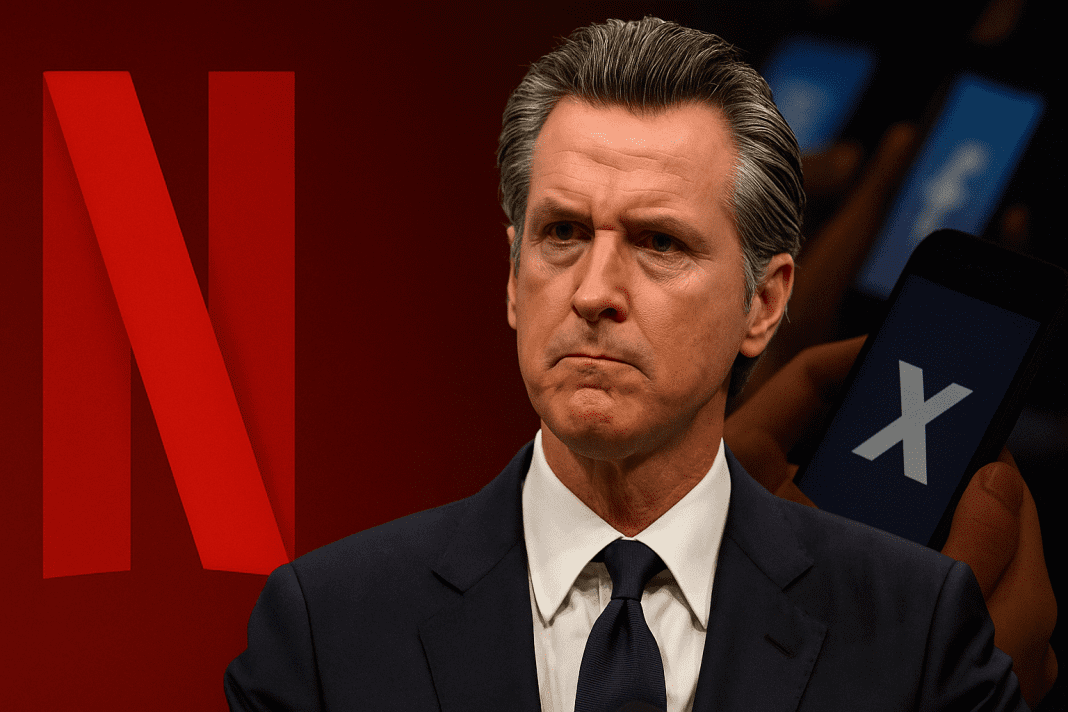Netflix is once again caught in a political storm. Over the weekend, the streaming platform trended online for unexpected reasons. Calls for cancellation spread rapidly on social media after controversies involving its co-founder and rumors of a comedian deal. Many supporters of the former U.S. president expressed anger, sparking boycott discussions under hashtags like #CancelNetflix.
The controversy combines political donations, viral speculation, and long-running tensions between conservative groups and popular public figures. Here is a clear breakdown of what is happening, why outrage started, and how users reacted online.
Donations by Netflix spark anger among critics
The backlash started when news surfaced that Netflix’s co-founder donated $2 million to redistricting efforts in California. For many conservatives, this donation signaled political support for leaders they strongly oppose.
The news quickly spread across social platforms like X. Soon after, frustrated users announced plans to cancel their Netflix subscriptions. Others accused the company of openly supporting one political side instead of remaining neutral.
The anger was not just about the donation. Critics saw it as yet another example of Hollywood and technology companies aligning against them.
Boycotts targeting companies are not new. They often erupt when business owners or executives make political choices. Netflix has faced such challenges before. However, the scale of this reaction highlights how sensitive today’s political climate remains.
Rumors of a comedian deal add fuel to the fire
While the donation sparked outrage, online rumors pushed tensions even further. Posts claimed Netflix signed a $13 million deal with a late-night comedian known for mocking the former president.
This claim lacked verified evidence. Still, it spread widely across social media, gaining traction among critics. Many linked the supposed deal to the donation, calling it proof of Netflix taking political sides.
The comedian has long been a target of conservative voices, especially after years of sharp jokes about Trump. His recent decision to step down from his late-night show kept him in the spotlight, making rumors appear more believable.
Even without official confirmation, the story fueled anger. For many online critics, the donation and the alleged deal became undeniable proof of Netflix’s bias. Posts accused the platform of “picking sides” and using its cultural influence to push political views.
Boycott hashtag trends across social media
As both controversies merged, hashtags demanding a boycott of Netflix started trending. On X, thousands repeated the same message: “Time to cancel Netflix.”
Trump moves to curb foreign journalists with sharp visa cuts citing security concerns
One frustrated user claimed Netflix was doing “everything it can to make me cancel.” Another asked if the platform was “the new Cracker Barrel,” linking it to previous boycotts of the restaurant chain. Such comparisons showed how quickly cultural debates can spread across different businesses.
The cancellation calls may not lead to mass subscription losses. However, they reveal how strongly emotions drive online movements. For many users, Netflix represents more than entertainment. It also symbolizes political influence and cultural alignment.
Netflix’s ties to a political donation and an unverified rumor triggered frustration among MAGA-aligned online circles. Whether cancellation calls continue or fade, the debate already stands as another flashpoint in the ongoing culture war.





